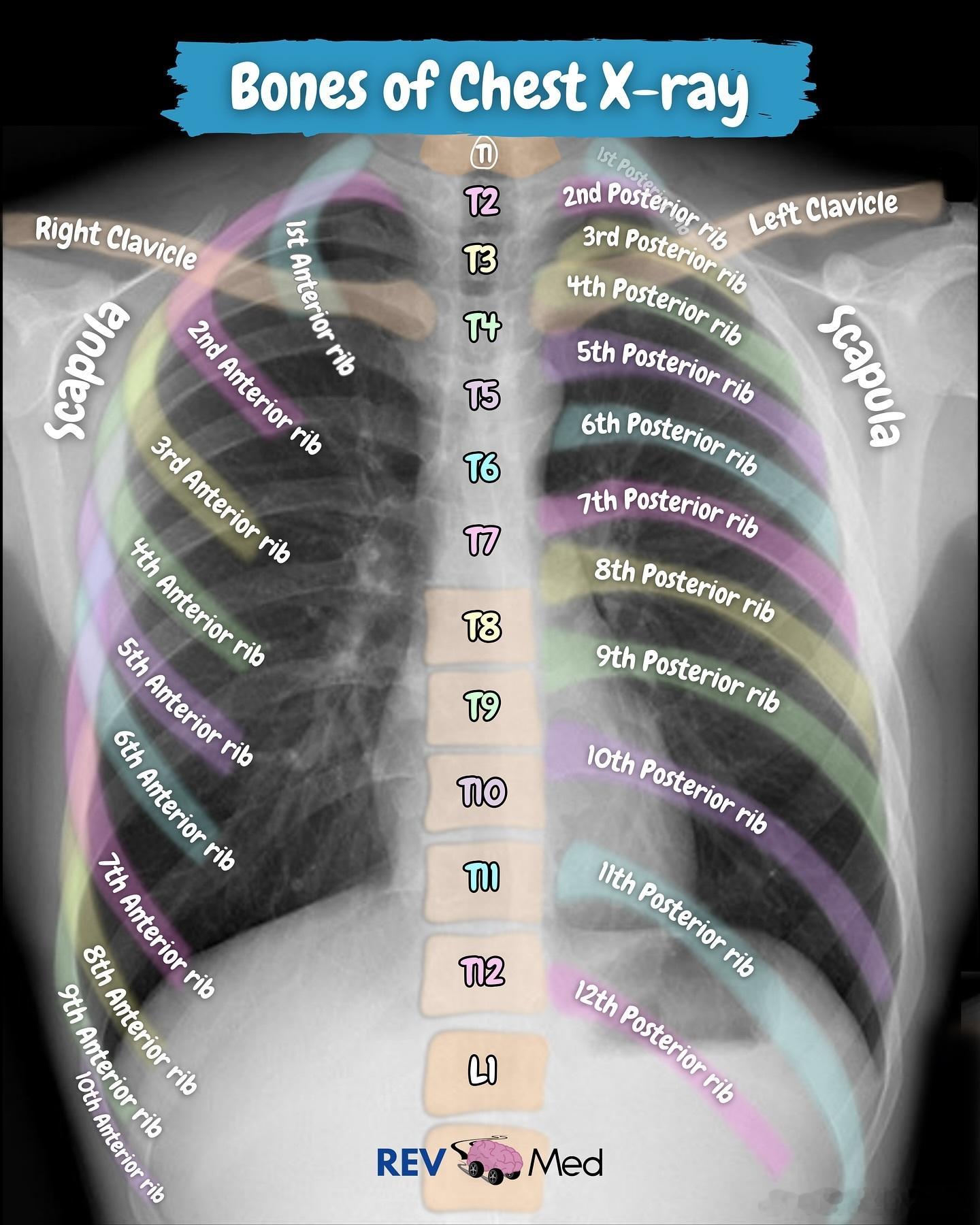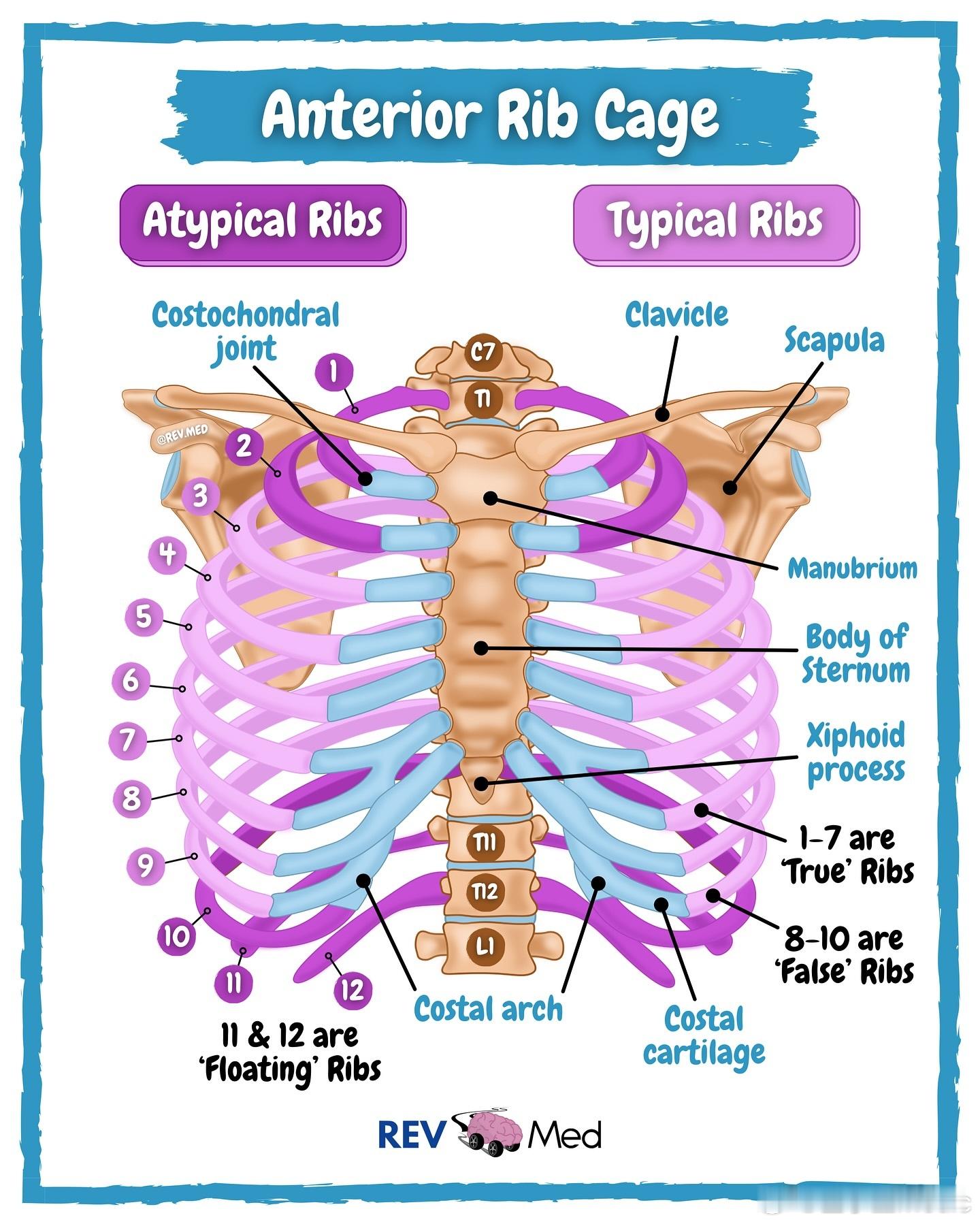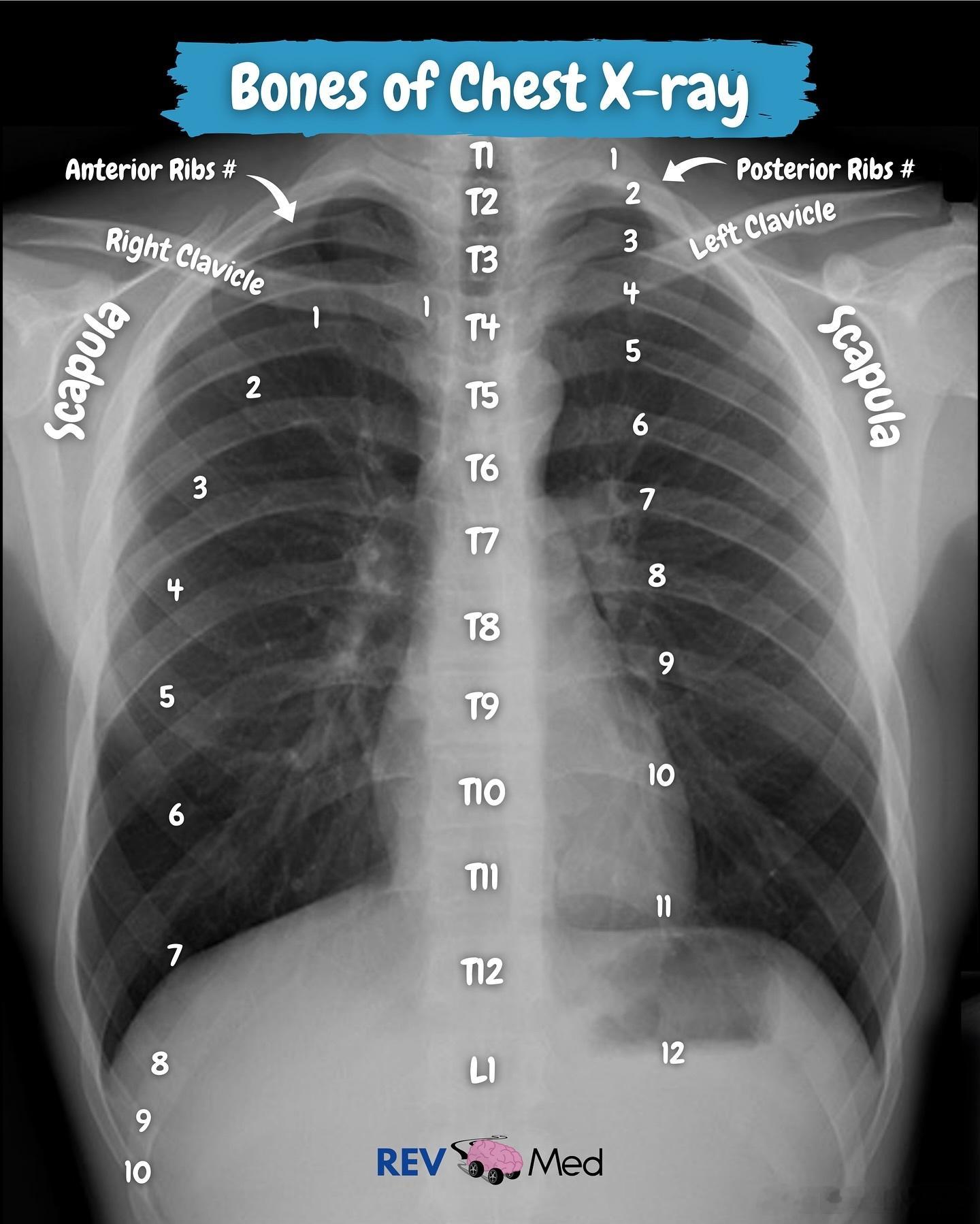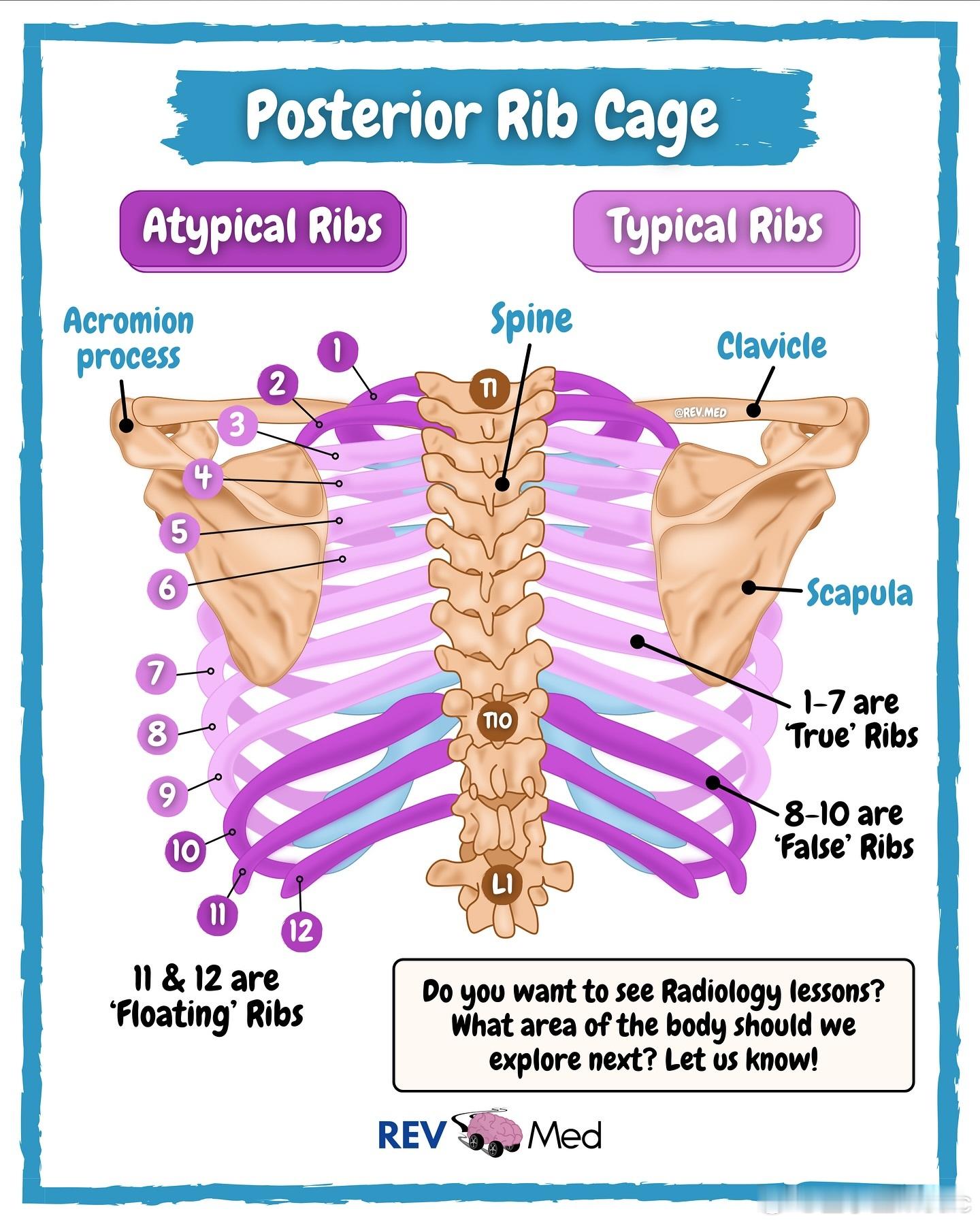The Rib Cage
✅ Ribs ’Typical or Atypical’
We have two types of ribs: bbq ribs which are ‘typical’ & countryside ribs which are ‘atypical’!
*Typical (Ribs 3-9)
Head, Neck & Body
-Head has two facets, one facet articulates with same number vertebrae, other articulates with vertebrae above.
-Neck connects head to body. Has a facet for articulation with transverse process of the same number vertebrae
-Body (shaft) is flat, thin and curvy (Yes laugh!...Now Focus!), and has costal groove protecting the intercostal vessels & nerves
*Atypical (Ribs 1, 2, 10, 11, & 12)
The odd ones out!
Rib 1: shortest & widest! One articulating facet with same numbered vertebrae T1. Has a scalene tubercle for insertion of the anterior scalene muscle. Important: it has 2 grooves for the subclavian vessels
Rib 2: thinner, longer, serratus anterior muscle attaches onto its upper surface
Rib 10: one facet articulating with same numbered vertebrae (T10)
Rib 11 and 12: NO neck, 1 articulating facet for the same numbered vertebrae (T11 & T12)
✅ True vs False Ribs
True Ribs 1-7: attach themselves to the sternum by their costal cartilage
False Ribs 8-10 attach to the 7th costal cartilage
False Ribs 11 and 12: No attachment anteriorly to sternum and only attached to vertebrae, aka the ‘floating ribs’ for this reason. Have no neck or tubercle
**Ribs 7-10th costal cartilages form the anterior costal arch (costal margin)
医学生Medic[超话]




